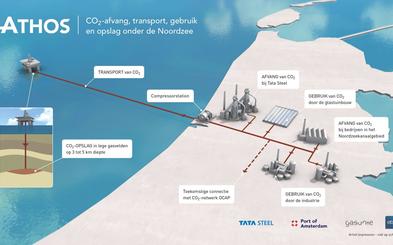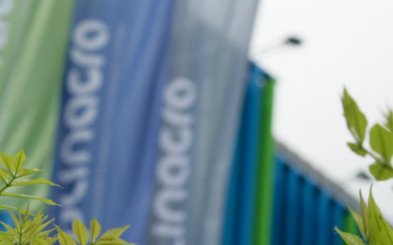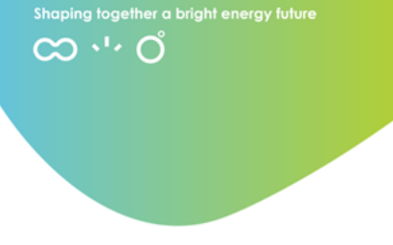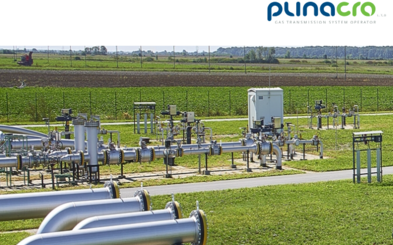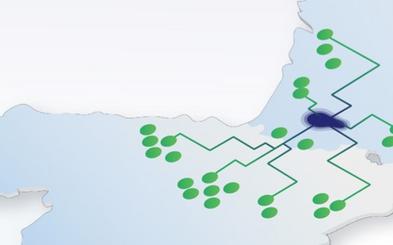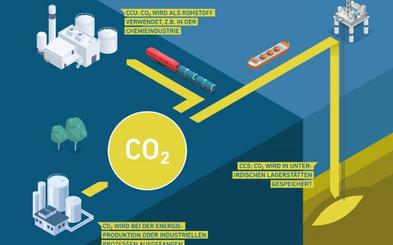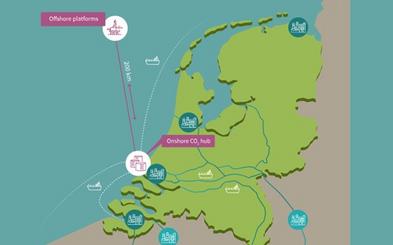INNOVATIVE PROJECTS PLATFORM

CCS and CO2 Transport
Carbon Capture and storage is the process of capturing CO2 from a set of possible sources, such as for example fossil fuel power plants, transporting it to a storage site, and depositing it underground on a permanent basis. The aim is to prevent the release of CO2 into the atmosphere.
PLINACRO Ltd.
SAVA aquifer CO2 transmission
Besides directly reducing the CO2 emission, the project will also enable CO2 neutral production of H2 in a transitional period until the full decarbonisation is achieved when the production of H2 will be carried out entirely from the renewable energy through electrolysers. The location and the capacities of CO2 storing enable, if proven to be economically justified, receiving and storing of CO2 from the neighbouring EU countries (SLO, HU) and Energy Community countries (SER, B&H). Project enables the collecting and receiving CO2 from the Zagreb and Sisak-Moslavina area for storing in the central and western Sava aquifer and in the depleted oil and gas fields in that area.
Contact: PLINACRO
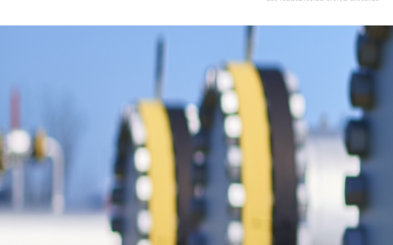
PLINACRO Ltd.
OSIJEK aquifer CO2 transmission
The location and the capacities of CO2 storing enable, if proven to be economically justified, receiving and storing of CO2 from the neighbouring EU countries (SLO, HU) and Energy Community countries (SER, B&H). Project enable the collecting and receiving CO2 from the Slavonski Brod and Osijek area for storing in the Osijek aquifer and in the depleted oil and gas field in that area.
Contact: PLINACRO
Fluxys
Belgian CO2 Transmission Facilities
Fluxys intends to roll out the necessary CO2 transmission infrastructure including pipeline interconnections between clusters and CCUS hub. Development will start with local pipeline networks in different clusters, further extended in function of the need to progressively give access to CO2 transmission infrastructure to all industry that would require it. The carbon clusters and backbone development also foresees possible interconnections with neighbouring systems, interconnection with adjacent networks in Germany, France and The Netherlands.
PLINACRO Ltd.
DRAVA aquifer CO2 transmission
Besides directly reducing the CO2 emission, the project will also enable CO2 neutral production of H2 in a transitional period until the full decarbonisation is achieved when the production of H2 will be carried out entirely from the renewable energy through electrolysers. The location and the capacities of CO2 storing enable, if proven to be economically justified, receiving and storing of CO2 from the neighbouring EU countries (SLO, HU) and Energy Community countries (SER, BH). Project enable the collecting and receiving CO2 from the Varaždin and Virovitica areas for storing in the Drava aquifer and in the depleted oil and gas fields in that area.
Contact: PLINACRO
Terega
Pycasso
PYCASSO looks at the potential to provide a mutualised territorial service of CO2 valorisation and storage for at least the 50 years to come. This programme enables the study of how South West France underground reservoirs, which have supplied France with gas for 60 years as well as the industrial basin that were built around this gas facility, can be a decarbonation solution of the industrial activity in the South West of France and the North of Spain.
Gasunie, OGE
ENERGY-HUB Port of Wilhelmshaven
In the ENERGY HUB we are not only dealing with ways of exporting CO2 to partner countries, but also with developing regional material cycles. Here, recycled carbon is a valuable and environmentally friendly alternative to oil, coal and natural gas - in the future also as a fuel and for plastics production.
Gasunie
Aramis
A large scale CO₂ transport and storage service, the Aramis project is a cooperation between TotalEnergies, Shell, Energie Beheer Nederland (EBN) and Nederlandse Gasunie, aims to make a significant contribution to the energy transition by reducing CO₂ emissions for the hard-to-abate industries. It will do this by offering a decarbonisation solution for the industrial sectors by enabling the transport of CO₂ to depleted offshore gas fields under the North Sea.
Fluxys
Northern Lights
The Northern Lights PCI is a commercial ship-based CO2 cross-border transport network. It connects European carbon capture initiatives with permanent carbon storage infrastructure under the Norwegian North Sea. PCI projects and participants can benefit from simplified permitting and the right to apply for EU funding from the Connecting Europe Facility programme. The Northern Lights PCI is linking project promoters located in seven European countries.
Gasunie
Porthos
Porthos focuses on transporting and storing CO2 that is captured by various companies. The companies will supply their CO2 to a collective pipeline that runs through Rotterdam port area. The CO2 will then be pressurised in a compressor station, transported through an offshore pipeline to a platform in the North Sea and pumped in an empty gas field. In its early years, the project will be able to store 2 to 2.5 million tonnes of CO2 per year.
Contact: S.J.R.Ransdorp@gasunie.nl
Gasunie
Athos
The Athos project aims to develop a public CO2-distribution network in the North Sea Canal area, enabling CCUS: the capture and transport of CO2, for usage or to be stored in empty gas fields under the North Sea. By doing so, Athos makes an important contribution to the Dutch climate objectives.
Contact: S.J.R.Ransdorp@gasunie.nl
